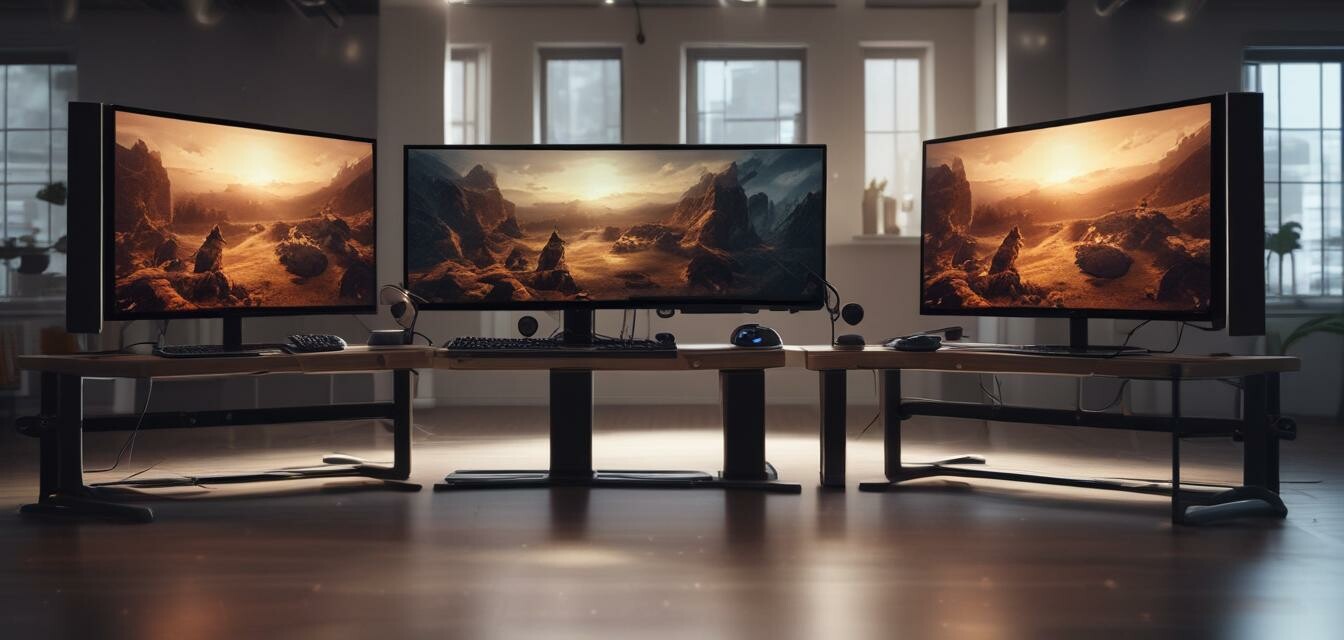
The Best OLED Monitors for Casual vs. Hardcore Gamers
Key Takeaways
- Casual gamers prioritize a balance of performance and comfort, while hardcore gamers seek high specs and responsiveness.
- OLED monitors deliver outstanding color accuracy and contrast, enhancing the gaming experience for all types of players.
- Different specifications such as refresh rates and response times are crucial for selecting the right monitor based on gaming style.
When choosing the right monitor for your gaming needs, understanding the differences between casual and hardcore gamers is essential. Casual gamers may prioritize affordability and comfort over maximum performance, while hardcore gamers often seek the latest technology to enhance their gaming experience. In this article, we will compare various OLED monitors, highlighting specifications and performance features that cater to both casual and hardcore gamers.
Understanding OLED Technology
OLED (Organic Light-Emitting Diode) technology has revolutionized the display industry, offering deeper blacks, brighter colors, and faster response times compared to traditional LCD monitors. Here's how it works:
- Each pixel in an OLED display emits its own light, which creates stunning visuals.
- Incredibly low input lag makes OLED monitors great for fast-paced gaming.
- Superior contrast ratios enhance the viewing experience by providing more vibrant colors.
Specifications That Matter
When selecting an OLED monitor, the following specifications should be taken into account:
| Specification | Casual Gamers | Hardcore Gamers |
|---|---|---|
| Refresh Rate | 60Hz to 120Hz | 120Hz and above |
| Response Time | 5ms or less | 1ms or less |
| Resolution | 1080p or 1440p | 4K |
| HDMI Ports | 1-2 ports | 3 or more ports |
| Adaptive Sync Technology | Optional | Essential (G-Sync/FreeSync) |
Casual Gamers: Features to Look For
Casual gamers often play games as a leisurely activity, valuing comfort and ease of use. When choosing a monitor, consider the following features:
- Comfortable Size: A 27-inch monitor is often ideal for a comfortable viewing experience.
- Affordable Price Range: Look for budget-friendly OLED options that offer good quality without breaking the bank.
- Good Color Performance: Ensuring vibrant colors for those enchanting gaming worlds can enhance immersion.
- Low Input Lag: While not as critical as for hardcore gamers, some level of responsiveness is still important.
Hardcore Gamers: The Must-Have Specs
For hardcore gamers, performance is the primary focus, and several specifications become crucial:
- Ultra-High Refresh Rates: Monitors with refresh rates of 120Hz or higher provide a smoother experience, making a significant difference in competitive gaming.
- Fast Response Times: A 1ms response time can eliminate motion blur, essential for fast-paced gameplay.
- 4K Resolution: Many hardcore gamers opt for 4K monitors to showcase the most detailed graphics.
- Adaptive Sync: This technology reduces screen tearing and stuttering, crucial for maintaining a competitive edge.
Comparative Insights
To further clarify the differences between suitable monitors for leisure versus competitive gaming, here’s a side-by-side comparison:
| Feature | Casual Gaming Monitors | Hardcore Gaming Monitors |
|---|---|---|
| Price | $200 - $600 | $600 - $2000+ |
| Screen Size | 24” to 32” | 27” to 49” Ultrawide |
| Additional Features | Basic connectivity options | Multiple HDMI ports, customizable settings |
| Typical Use Case | Leisure and casual gaming | Competitive multi-player scenarios |
Key Brands and Models to Consider
While the specific models may vary, certain brands are renowned for producing high-quality OLED gaming monitors for both casual and hardcore gamers. Some of the top brands include:
- LG: Known for excellent color accuracy and performance.
- Samsung: Offers stunning visual designs and features.
- ASUS: Specializes in high-performance gaming monitors.
- Dell: Provides solid budget options without compromising quality.
Conclusion
Choosing the right OLED monitor ultimately depends on your gaming style. Casual gamers should focus on comfort and affordability, while hardcore gamers will want to invest in high-performance specifications. By comparing features and understanding your specific needs, you can find the perfect OLED monitor to elevate your gaming experience.
Pros
- Outstanding color accuracy and response times.
- Immersive visual experience for both types of gamers.
- Wide variety of options to meet different budgets.
Cons
- OLED monitors can be pricier compared to LCDs.
- Some models may have burn-in issues if not used properly.
- Limited availability of certain high-end features in lower-end models.